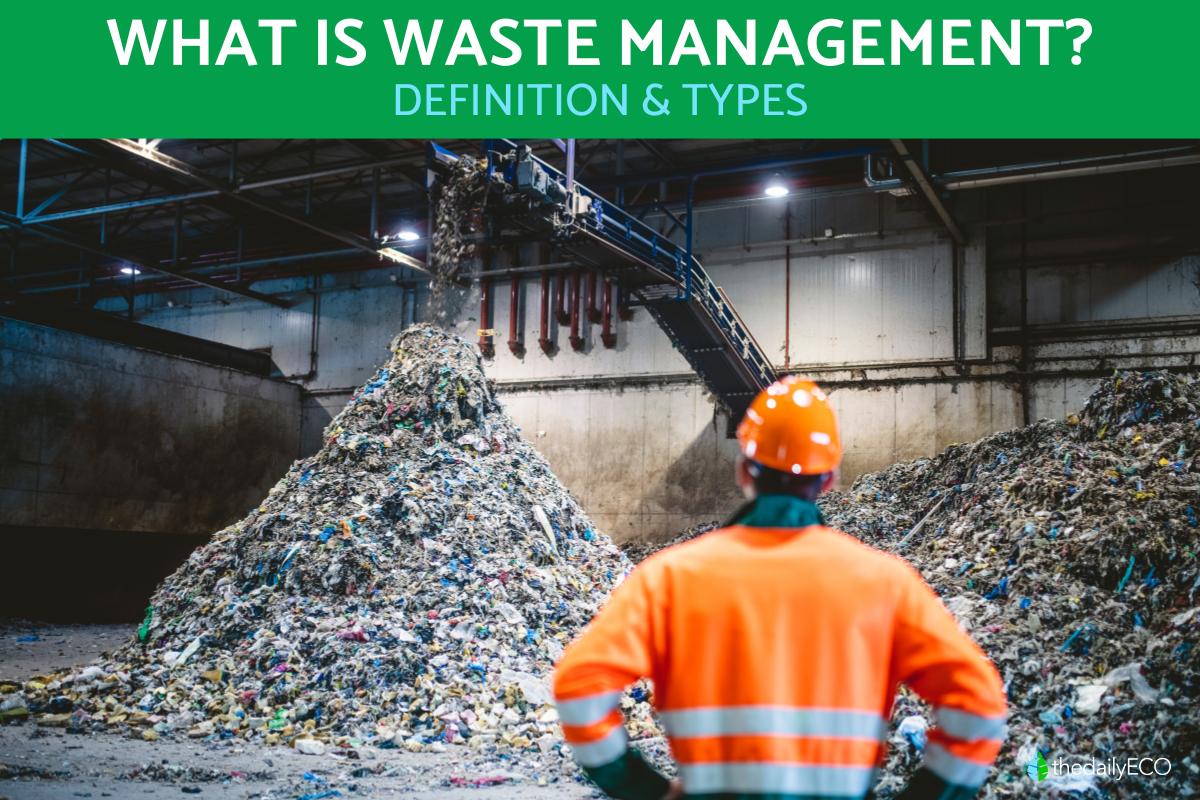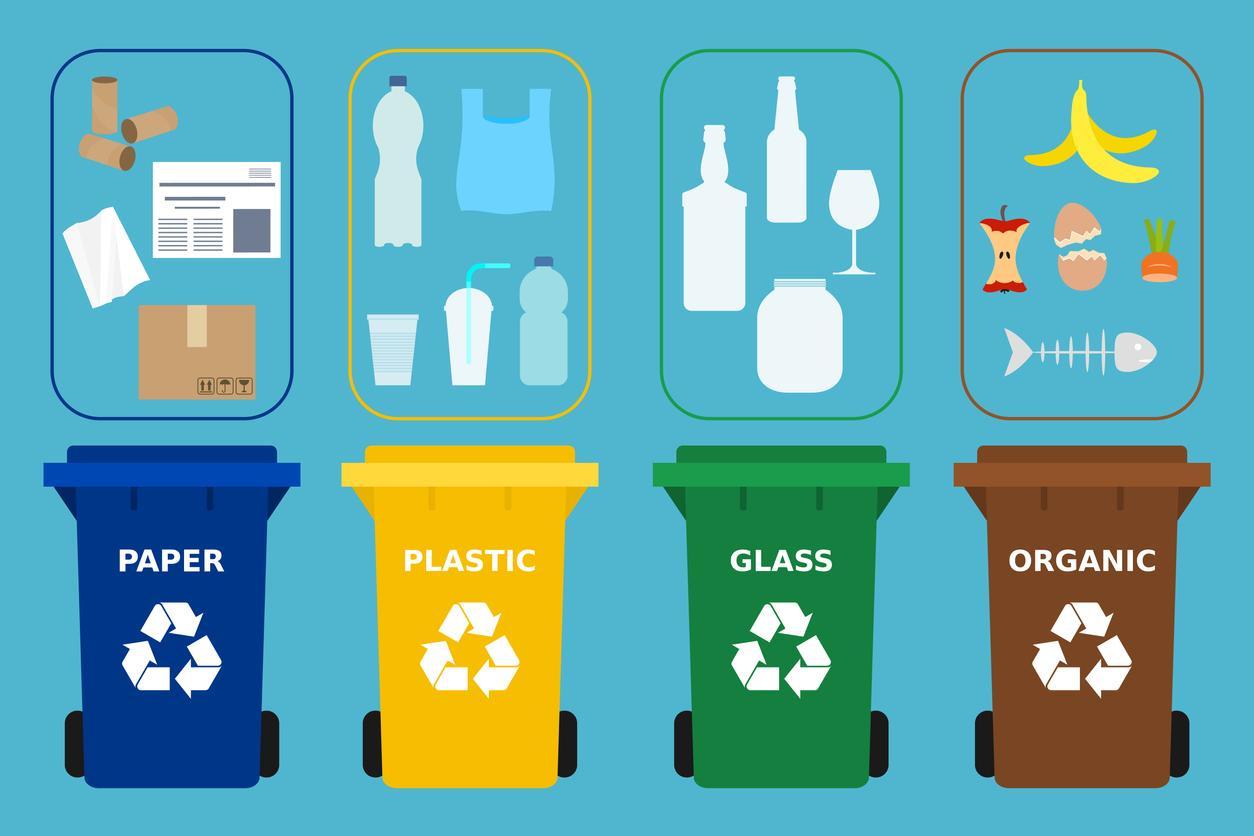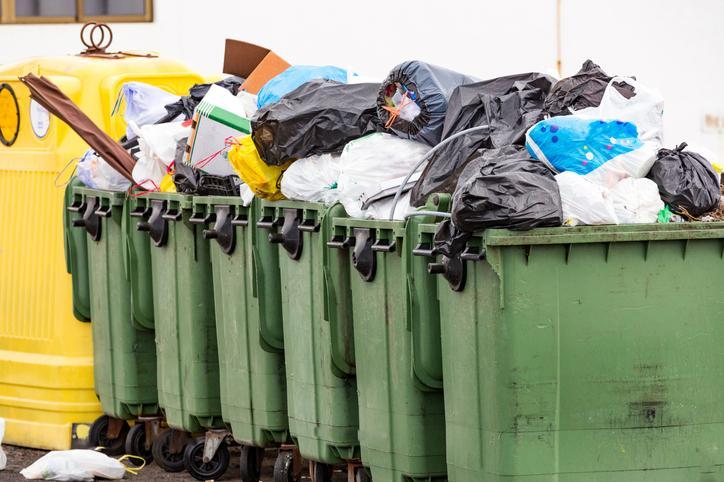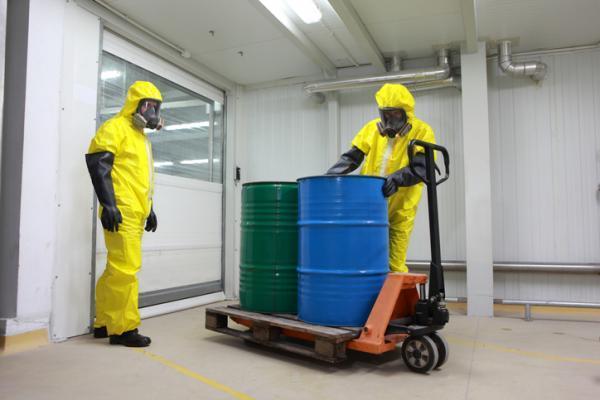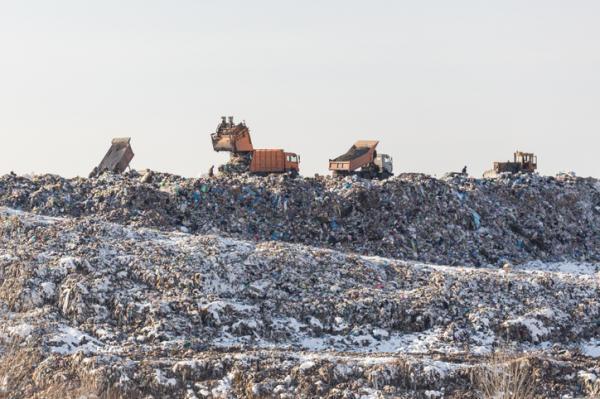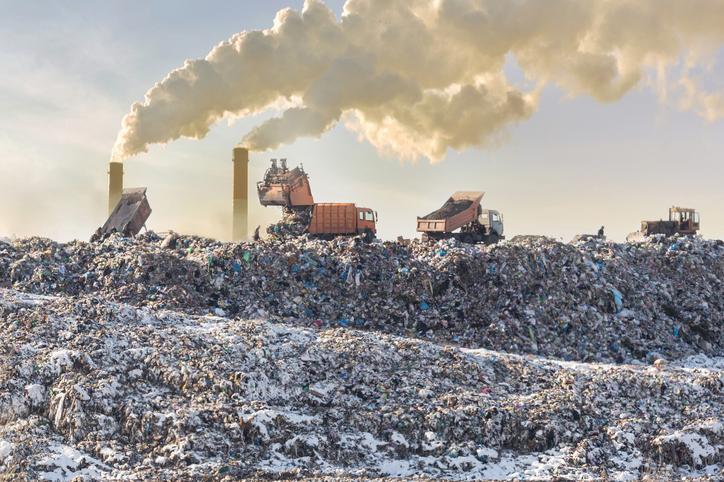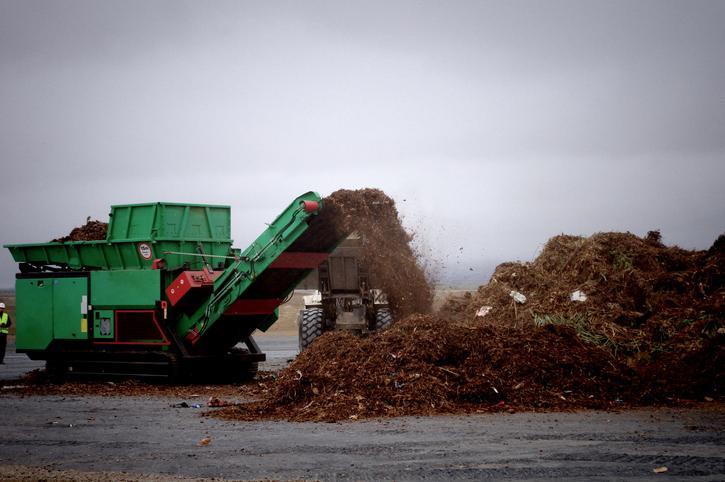What is the Meaning of Waste Management?


The majority of the world's waste is generated by humans due to our large population numbers and our current rate of consumption. While each individual creates their own amount of waste, our various industries create amounts of waste that is becoming increasingly problematic. This excessive growth of waste is having deleterious impacts on global ecosystems, threatening plant and animal species, as well as contributing to the effects of climate change. For this reason, managing this waste on both a local and global scale is complicated. Different waste management strategies are implemented to help us deal with the progressively increasing amount of waste we create
At thedailyECO, we discover these strategies by asking what is the meaning of waste management? in addition to providing a definition, we look at the types of waste management, as well as how they are implemented and regulated.
- Waste management meaning
- Types of waste management
- Urban solid waste management
- Hazardous waste management
- Health waste management
- Industrial waste management
- Waste management techniques
- Deposit in landfill
- Recycling
- Incineration
- Pyrolysis and gasification
- Composting and methanation
- What is a waste management plan?
- Waste management regulations
Waste management meaning
Waste management refers to the strategies implemented in removing the waste material we produce. Different types of waste exist, requiring different methods of management. These types are created by various industries and have different environmental repercussions. Despite such variety of waste types, we can group waste management into the following three main phases:
- Sorting and collection: the waste we produce should be disposed of in various receptables to aid in collection and sorting. Different countries have different waste management systems to aid in this process, but many use color-coordinated containers. These are usually separated into materials such as plastic, paper, glass, organic waste and general waste.
- Transport: in this phase the waste is taken in vehicle to the classification or treatment plants. The waste disposal may already begin in terms of sorting and compacting the waste at this stage.
- Treatment: in this last phase of waste management, waste undergoes different treatments depending on its origin using different techniques.
Learn more about one of the most important types of waste with our article asking what is organic waste?

Types of waste management
The classification of waste management is based mainly on its origin. In this way, depending on how the waste was created, its management can be classified into:
- Urban solid waste management
- Hazardous waste management
- Health waste management
- Industrial waste management
Learn about one specific type of solid waste with our article explaining the different types of plastic.
Urban solid waste management
Urban solid waste is the type of waste generated in residential homes. These include electrical appliances, cleaning products, furniture, packaging, debris and many more types. The management of these types of waste involves procedures related to collection, separation, treatment, recycle and final waste deposit. Waste collection can be global or selective, the latter classifies waste depending on its composition to then be recycled (plastic, glass, paper) or receive specific treatment.
Many waste management strategies place importance on household waste solutions. These are very important and not insignificant in terms of the overall waste we produce. However, large-scale industrial waste produces much more in total.
In our related guide you can learn more about what is solid waste is and how it is classified.

Hazardous waste management
This type of waste management includes all the processes that create waste classified as dangerous to human health and the environment. For their management, a series of rules are followed from their collection, classifying them according to various criteria. They then go through chemical and physical treatments to convert them into inert substances. They are often left in reinforced tanks to reduce their danger.
Some examples of hazardous waste are:
- Explosives
- Flammable materials
- Carcinogenic materials
- Radioactive materials
- Sensitizers (allergenic material)
- Irritants
In our related article, we explain more about one type of hazardous waste by asking what is radioactive waste?

Health waste management
Sanitary waste or health waste has a high biological risk to humans, so its handling is very important. During the management of healthcare waste from hospitals and other institutions, it must be classified and stored correctly. Specific measures must be used for its destruction in order to reduce or eliminate the high danger it poses to the environment and health. Waste must be delivered to companies that are accredited to transport it to where it is eliminated.
This type of waste can be further divided into different types of biomedical waste.

Industrial waste management
Industrial waste is that which derives from the production processes of various industries. For the management of industrial waste, the companies that generate the waste must keep it in optimal conditions until a manager collects it. This is collected to be transported fir treatment and recycling. Some of the treatments used are physical, chemical, biological or thermal.

Waste management techniques
The techniques used for waste management and treatment vary according to material and other factors. In the next sections we look at the following waste treatment options used in waste management:
- Deposit in landfill
- Recycling
- Incineration
- Pyrolysis and gasification
- Composting and methanation
Deposit in landfill
All the garbage generated is deposited in landfills. These are usually located in areas far from urban centers and many of them are illegal. If the landfill is well managed and designed, it is an economical and hygienic option to accumulate garbage. The problem is that there are old landfills that do not have a good design. Many of them are illegal, posing a danger to the environment due to a lack of regulation.

Recycling
Recycling aims to recover discarded materials to make them useful as a new product. To do this, specific containers are used for each discarded material. For waste management through recycling, the person or enterprise that generates the waste has the responsibility of classifying it and depositing it in its container. The waste is later transported to its corresponding recycling plants. For example, plastic, glass and paper are three materials that can be recycled.
Learn more about how we can use this process with our article asking are paper towels recyclable?
Incineration
This technique is very practical for waste disposal. The waste is subjected to incredibly high temperatures to burn them up. However, the combustion of materials used in incineration does caused environmental impact due to hazardous byproducts. A common example is increased carbon emissions due to the polluting emissions created. However, this can be mitigated if the energy is redirected to create electricity and heat.

Pyrolysis and gasification
They are two techniques that are carried out by applying a thermal treatment to the waste. This means they are heated in tanks that are completely sealed and have very little oxygen. Pyrolysis converts waste into liquid and gaseous products that can be burned again, producing more energy. This is in addition to obtaining new products by refining them. With solid products, active carbon can be obtained. Gasification is used to produce energy.

Composting and methanation
Composting is carried out to decompose organic waste such as animal and plant remains, manure and other excrement through aerobic decomposition. This means it is carried out in the presence of oxygen thanks to aerobic bacteria. As a product of this process, fertilizer is obtained that can be used in agricultural activities. Another decomposition process called methanation can be carried out which occurs without the presence of oxygen.
This type of waste management is carried out on an industrial scale, but it can also be done at home. Take a look at our guide to the best homemade organic fertilizers.
What is a waste management plan?
It is a comprehensive document in which productive or industrial companies must indicate the conditions and means that will be carried out for waste management during all production activities. The waste management plan (WMP) must contain an estimate of the waste that will be generated, as well as the cost of management.
Also included in the WMP are plans of the installation, the type of waste that will be generated, how they will do it and other necessary information. All the information in the document must be reviewed by professionals in order to obtain the necessary authorizations to begin productive activity.
What is a waste management study?
The waste management study is a document that develops the correct way to manage the waste generated depending on its nature.

Waste management regulations
There are many rules and laws that are established to carry out correct waste management, existing at different levels. Depending on the area in which we live, management is governed by certain rules and not others. For example, there may be some federal regulations which everyone needs to adhere to, but individual states and even countries may have their own regulations.
Some of the most important regulations affected by waste management in the United States of America include the following:
- Resource Conservation and Recovery Act (RCRA): a federal law which creates a framework for disposing of solid and hazardous waste. This affects all stages including sorting, transport and treatment.
- Comprehensive Environmental Response, Compensation, and Liability Act (CERCLA or Superfund): holds responsible parties to account for negligent waste management practices.
- Clean Water Act (CWA): regulates how pollutants affect water supplies and tries to ensure groundwater is kept clean.
- Clean Air Act (CAA): similar to the clean water act, but focusing on gas emissions which pollute the air.
- Toxic Substances Control Act (TSCA): chemical regulation act to prevent pollution.
There are other regulations which have been introduced at different levels of government. Learn more about one of the most voluminous types of infrastructure waste with our article explaining how to get rid of bricks and building rubble.
If you want to read similar articles to What is the Meaning of Waste Management?, we recommend you visit our Recycling and waste management category.





